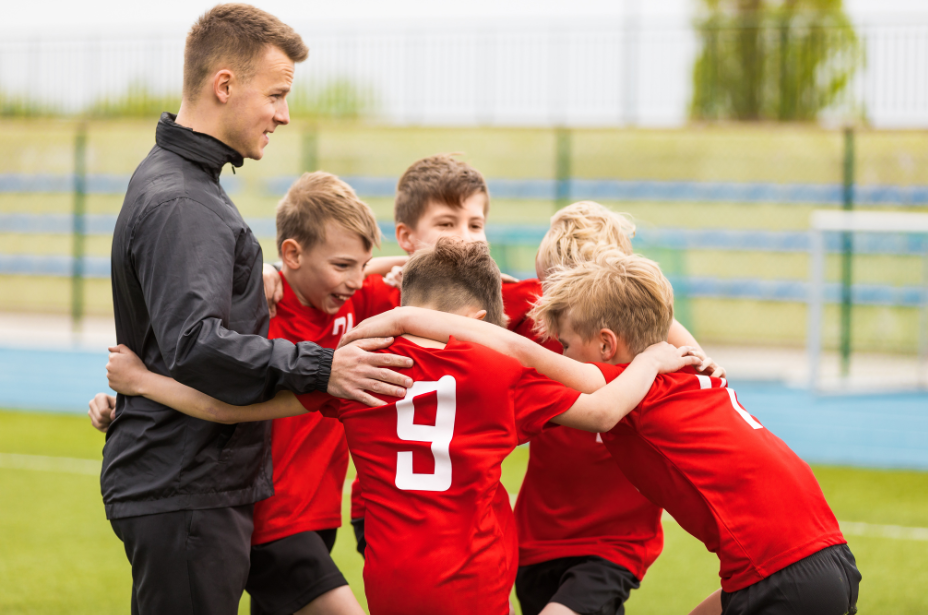
Being a coach in a kids’ sports league is a rewarding and challenging role. Coaches have a unique opportunity to shape young athletes’ lives, teaching them important skills both on and off the field. While the regular season is filled with practices, games, and team camaraderie, the off-season can present challenges in keeping kids motivated and engaged. So, let’s explore the essential qualities of a successful coach while also talking about the importance of motivation during the off-season.
The Role of a Coach in Kids Sports Leagues
A coach’s role extends beyond teaching athletic skills. It involves fostering a positive and inclusive environment where children can develop their physical abilities, learn teamwork, build character, and develop a love for sports. A successful coach possesses qualities such as patience, leadership, effective communication, and a genuine passion for nurturing young athletes.
If you’re already coaching kids sports, whether you’re a paid coach or a parent volunteer, you probably already know this. We enroll our kids in sports partly for the fun, partly for the exercise and learning about physical fitness, but also partly because sports are a good learning opportunity for young people. There’s just so much good that participating in sports does for young people.
The Importance of Off-Season Motivation
The off-season is a critical period for young athletes. It’s a time when their dedication and enthusiasm for their chosen sport can wane because of the absence of regular practices, games, and general interaction with their team. However, maintaining motivation during the off-season is crucial for children’s long-term development and overall enjoyment of the sport. Off-season motivation helps prevent skill regression, keeps athletes physically active, and encourages them to continue their growth as individuals and team players.
All of this also ensures that young athletes can almost literally hit the ground running when the season starts again. They’re fit, their skills are still sharp, and they’ve been thinking about getting back on the field during their down time. This means your team can get ready for their first game back a lot more quickly. There are just so many benefits to keeping athletes, regardless of age, motivated when it’s out of season.
Strategies for Off-Season Motivation
There’s a few ways you can keep your young athletes motivated and interested when they’re not playing.
Set goals and individual development plans:
Encourage athletes to set short-term and long-term goals for the off-season. These goals could include improving specific skills, increasing strength or stamina, or learning new techniques. Develop individual development plans tailored to each player’s needs and provide guidance on how to achieve those goals.
Give a variety of activities:
Suggest a diverse range of activities during the off-season that align with the sport. This could include cross-training, participating in other sports, attending camps or clinics, or engaging in general recreational activities. Introducing new challenges and experiences helps prevent burnout and keeps athletes engaged. Keep in mind that you should tailor all of this to each player as much as possible. What works for one of your players may not work for others.
Give positive reinforcement and recognition:
Celebrate and acknowledge the achievements and progress of individual players throughout the off-season. Offer specific and constructive feedback to boost their confidence and motivation. Recognize their dedication and hard work, whether it’s through awards, certificates, or verbal praise. But also remember this is kids sports! Some kids will be more naturally motivated and able than other kids. Avoid chastising kids who just want to take a well deserved break.
Consider virtual training and communication
Utilize technology to provide virtual training sessions, video analysis, and online resources. Create online platforms where athletes can connect with teammates and coaches, fostering a sense of community and camaraderie. Regularly communicate with athletes and their parents, providing updates, encouragement, and answering any questions they may have. This is a great place where PlayyOn can help. We have a free platform to help you communicate with your team.
Find mentors and role models:
Arrange opportunities for young athletes to interact with older players or mentors who have excelled in the sport. These role models can inspire and motivate younger athletes, helping them visualize their own potential and set higher aspirations. This doesn’t necessarily have to be professional or famous athletes, but perhaps you have some players from an older league in your area who are willing to help out. The older players will likely enjoy working on their own skills during the off season, and may even be excited about passing their skills on to someone younger.
This all has the added benefit of fostering community in your league. It’s always important to get everyone involved.
Get the family involved:
Engage parents and families in the off-season activities. Organize family-friendly events such as picnics, team outings, or skill-building workshops where parents can actively participate and support their children’s athletic journeys. Parent and guardians want their kids to have fun playing sports, and they also want to see them succeed. Family friendly off-season events are another great way to build a community around your league while also keeping off-season involvement high. And it keeps everyone’s skills sharp; even yours as a coach!
Being a coach in a kids’ sports league requires more than just teaching athletic skills. It demands a commitment to nurturing young athletes’ overall development, both on and off the field. The off-season presents an opportunity to reinforce motivation and sustain the passion for the sport. By implementing strategies such as goal setting, providing varied activities, offering positive reinforcement, utilizing technology, providing role models, and involving families, coaches can keep young athletes engaged, inspired, and motivated during the off-season. Ultimately, these efforts contribute to the holistic growth of young athletes and the long-term success of the sports league.